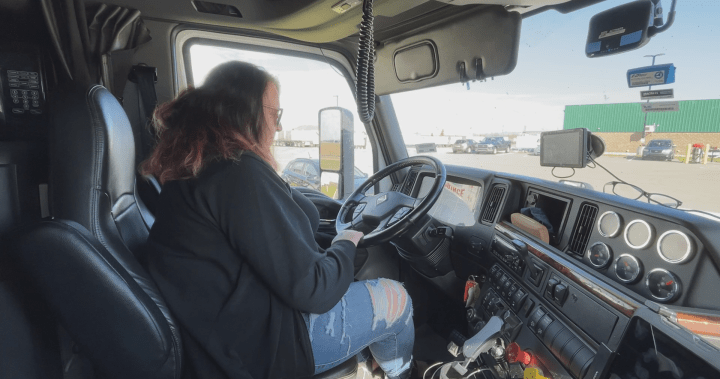A woman from New Brunswick, Allie Fanjoy, shared her experience of being sexually assaulted while working as a trucker, leading to symptoms of post-traumatic stress disorder. She is calling for the trucking industry to be more aware of women’s safety and for other drivers to be more welcoming. Fanjoy highlighted the importance of trucking companies having concrete harassment policies and training drivers to treat women with respect and equality. Despite her traumatic experience, she still loves trucking and would recommend it to other female drivers, as long as safety is a top priority.
The percentage of women entering the trucking industry has increased by 43% from 2016 to 2021, yet only four percent of truck drivers in Canada are women. Trucking HR Canada CEO Angela Splinter mentioned that their research shows that 89% of women currently working in the industry would recommend it to other women. However, there is a perception that the industry is unsafe, which Trucking HR Canada is working to address. They are collaborating with trucking companies to create a more welcoming environment for women and provide tools and resources to attract, recruit, and retain more female drivers.
Splinter emphasized that studies have shown that rates of violence and harassment in the trucking industry are no higher than in other industries. Trucking HR Canada’s report, titled “Moment with Drive: Maintain our Momentum,” aims to address the perception of the industry as unsafe. Fanjoy reiterated the need for companies to have clear harassment policies and train drivers to treat women with respect while on the road. She also stressed the importance of considering safety when dispatching women on runs, ensuring they have safe parking spots.
Despite her traumatic experience, Fanjoy expressed her love for trucking and her hope that the industry will become safer and more welcoming for women. She believes that with the younger generation coming up, positive change can happen within the industry. Fanjoy’s call for greater safety protocols and respect towards female drivers reflects a broader conversation within the industry about promoting a more inclusive and safe environment for all workers. Trucking HR Canada’s efforts to address these challenges and promote gender diversity in the industry are crucial steps towards creating a safer and more inclusive workplace.
In conclusion, the trucking industry is making strides to become more welcoming and inclusive for women, with efforts from organizations like Trucking HR Canada to address safety concerns and promote gender diversity. Allie Fanjoy’s story sheds light on the need for clear harassment policies, training for drivers, and consideration for the safety of female truckers. Despite her traumatic experience, Fanjoy still believes in the potential of the industry and hopes that with continued efforts, positive change can occur. By working together, the industry can create a safer and more inclusive environment for all truckers, regardless of gender. There is still much work to be done, but progress is being made towards a more equitable and safe workplace within the trucking industry.


